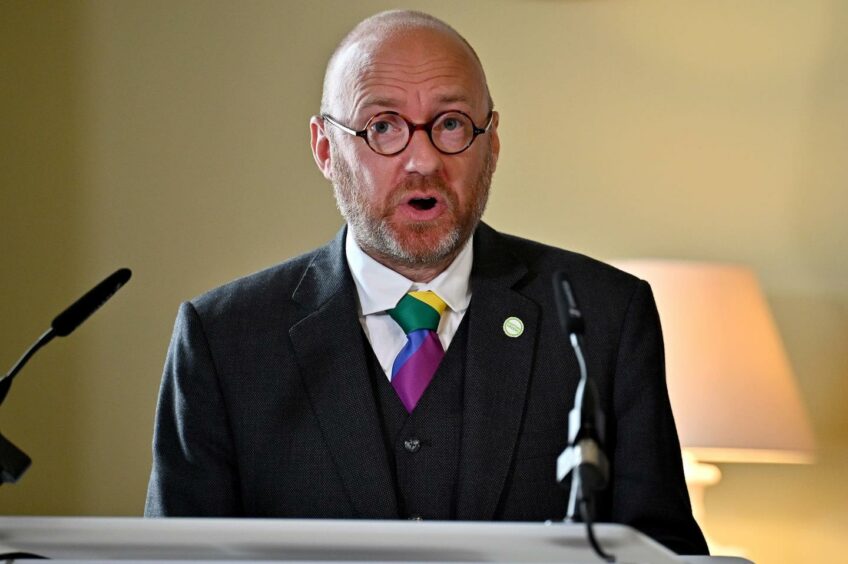
A couple of weeks ago, a Scottish green party MSP claimed that it is only the “hard right” who continue to support development of the Cambo oilfield on the UK Atlantic Frontier.
Personally, I find Patrick Harvie’s remarks regarding Cambo offensive. By no stretch of the imagination am I even a little right let alone extreme right when it comes to politics. I am a socialist.
And by the way, I have been a committed environmentalist for more than 50 years; longer than Harvie has been alive.
He might think that’s rather odd given that I have been writing about oil & gas for over 30 years.
Happenstance, renewable energy has received considerable attention too. Moreover, I set up Aberdeen Renewable Energy Group over 20 years ago and served as a director of the Aberdeen Bay windfarm project through the entire and ultimately successful consenting process.
What really gets me about Harvie’s willing the demise of Cambo is the level of contempt he consistently displays towards the North Sea oil & gas transition, which I have come to believe is the most committed, systematic high to low carbon campaign anywhere in the world or, at the very least, it ranks close alongside Norway’s efforts.
Norway’s strategy does not rule out greenfield developments where appropriate; an approach that is roughly paralleled in the UK; of which Cambo is a prime current example of a proposed 170million barrels (phase one) development that would smooth the UKCS decline curve.
Harvie seems not to understand or has simply closed his mind to the importance of domestic oil & gas production to the energy transition that the UK is necessarily going through over the next two to three decades and that it will play an important role in limiting imports of expensive hydrocarbons for refining.
The industry has repeatedly warned that winding up production rapidly will not suppress demand for hydrocarbons and could instead result in greater levels of imports, sometimes from regions with less stringent environmental regulations.
Among other things like jobs, this has clear significant UK balance of payment implications and will directly impact how much public money is available to help fund low carbon R&D, including the ultimate energy “Holy Grail”, nuclear fusion, an expensive quest still very much alive in the UK.
And I suspect that Harvie does not yet understand that green technologies are heavily dependent on the oil & gas industry for raw materials, notably polymers used in wind turbine blade manufacture for which there are currently no credible green-tech substitutes. And that’s just one example.
Which is another good reason why Cambo’s good quality hydrocarbons are is so important to a successful transition from high to low carbon energy in the UK.
I’ve been digging back through my archive to remind myself of the Cambo story; the first mention being a discovery 20 years ago by the US mid-ranker Hess.
That was good enough to persuade the company to drill three further appraisal wells on the Corona/Westray ridges junction discovery (204/10), the last and therefore fourth well overall being drilled in 2011.
Hess didn’t stay the course, selling its West of Shetland holdings to Austrian company OMV in 2014. OMV already held 15% of Cambo and the sale boosted this to 47.5%.
Then, private equity financed UK oil junior Siccar Point picked up OMV’s UK business late 2016 in a deal worth around £1billion, so greatly strengthening its portfolio.
As history tells us, the Aberdeen company didn’t hang about; it was important to get a better grip on the size of Cambo reserves … not just oil but worthwhile quantities of gas too.
Siccar needed a strong partner to help spread the risk and Shell agreed to farm into the discovery in May 2018.
In turn, this got the Faroese very excited as the field sits very close the UK-Faroe territorial waters median line. Last month I wrote about the Danish possession’s ongoing hopes for oil & gas, COP 26 notwithstanding. This includes the hope that Cambo reserves reach into Faroese territory.
Today, we’re in the extraordinary situation of Shell dumping the project and Siccar Point pausing for a deep think about what to do next.
I’m not sure whether I buy Shell’s reason for getting cold feet; officially it claims the project doesn’t make the grade financially, but I think there’s more to the decision than hat.
Like many Energy Voice readers, I’m concerned about collateral damage to other West of Shetland fields, whether ongoing stuff like BP’s Clair South.
Or the super-major’s redevelopment of Foinaven, which is currently shut-in but with 200million barrels worth of reserves remaining to produce.
Or Equinor-operated Rosebank which is currently working with Altera Infrastructure regarding the possible use of the latter’s Petrojarl Knarr FPSO being picked to produce the 300million barrels field.
Siccar Point is a junior. BP and Equinor are heavies, both with significant commitments to low carbon energy; especially the latter.
Will Harvie blunder into battle with these guys too; or will he be more circumspect?
Significant hostility on his part or from others in Holyrood could, for example, provoke BP to dump the tentative idea of making Aberdeen home for its proposed offshore wind HQ and for Equinor to pare back its commitments in Scotland too.
That would be rank bad strategy on the politician’s part would it not?
Recommended for you
